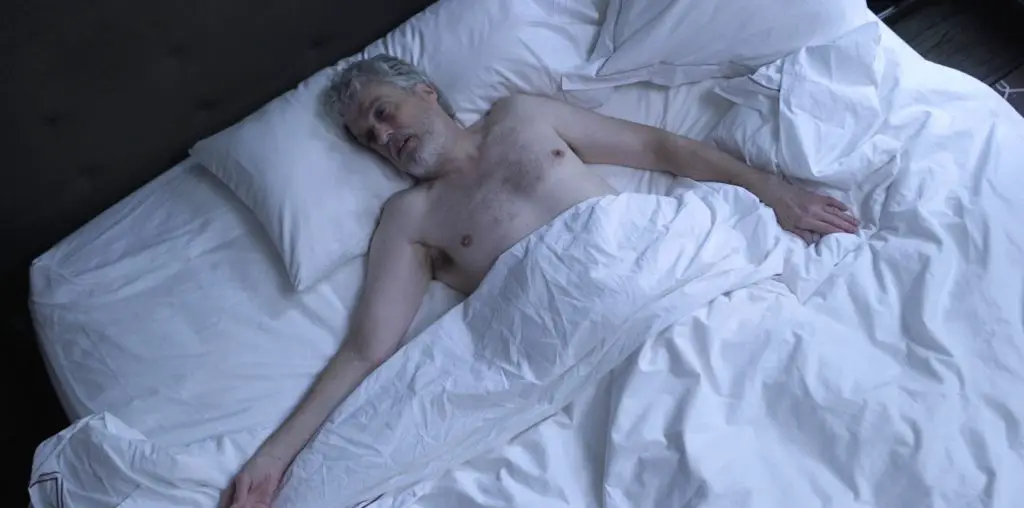
Director Mike Nichols is one of a dying breed. He’s going on his fifth decade of helming feature films and, even with a few missteps here and there (“Regarding Henry,” anyone?), he still commands respect like few of his contemporaries. His resume, or the high points anyway (“The Graduate,” “Catch-22,” “Silkwood”), reads like one of those stupid AFI lists, and he’s reached even greater heights in just the last few years with the likes of “Wit” and “Angels in America.”
“Closer,” Nichols’ latest effort, continues this recent trend. It’s a story of betrayal, abandonment, and the ephemeral nature of love. Unlike contemporaries like Hal Hartley, who’ve tread the same ground with mostly despicable characters, Nichols evinces some sympathy for his players…but not too much. He’s also assembled a far more distinguished cast than Hartley ever managed.
Dan (Jude Law), an obituary writer, meets Alice (Natalie Portman) quite literally by accident when the young former stripper looks the wrong way crossing a London street and is hit by a cab. The two strike up a relationship, and a scant four months later, they’re living together and Dan has written a book based on Alice’s life. Enter Anna (Julia Roberts), a photographer doing a photo shoot for the new author. After some brief verbal foreplay, wherein Dan is attracted by Anna’s candor and Anna is drawn to the way Dan looks a lot like Jude Law, the two start making out in her studio. Alice arrives, and rather awkwardly confronts Anna.
Dan seems a decent sort (aside from the whole cheating on his woman bit), if a bit neurotic. His tryst with Anna awakens the obsessive in him, unfortunately, and he finds himself doggedly pursuing her, even after she begins a relationship with Larry the dermatologist (Clive Owen). Then again, Larry only hooks up with Anna after Dan steers him into a meeting following some hilarious internet sex chat.
On the surface, “Closer” doesn’t sound a whole lot different from any of the dozen or so angsty romance-gone-bad flicks that come out each year (minus the internet sex chat, that is). The differences in this case are the writing (“Closer” is based on the play by Patrick Marber, who hasn’t sweetened the dialogue any) and the cast. Law (2004’s hardest working man in show business) brings Larry’s weaknesses to the forefront in convincing fashion. And while Roberts has never done much for me, here at least she escapes her usual big budget romance pigeonholing.
The two performances everyone’s going to be talking about, however, are those of Portman and Owen. In Alice, Portman is obviously making a statement that she’s all grown up and ready to move beyond the “Star Wars” prequels. Alice is simultaneously needy and distant, impulsive, and ultimately manipulative. Perennial James Bond frontrunner Owen is the movie’s real find, however. He imbues Larry with an almost unbearable coarseness, tempered with brutal honesty.
But for all the talking movie critic types will be doing about Owen’s work, Portman stands to create an entirely new crowd of fetishists. Her nude scenes have been cut from the final version, but there’s very little left to the imagination during her intense scene in a strip club with Larry. It’s a shame, in a way, because all the fanboy hyperventilating will probably detract from what really is a powerful portrayal.
The major pitfall to movies like this is the very real possibility that the audience won’t care much about a bunch of nasty people doing nasty things to each other, and “Closer” suffers somewhat from that. Of the four principal characters, only Larry spends the majority of the film without an agenda (naturally, this doesn’t last). Fortunately for Nichols, Marber’s script is smart enough and often uncomfortably amusing, and the talent he’s arrayed all live up to their marquee status.
Even Roberts.
My only real complaint is the Damien Rice score, and especially the song that bookends the film. I’m not a fan of his work to begin with, but his work seems incongruous with the surroundings.
The title “Closer” describes a state of being completely at odds with where the characters end up. There’s little redemption to be found here, and much in the way of rejection and distance. “Closer’s” not much of a date movie, but it is something that should be appreciated even more (especially these days): an intelligently written, well-acted, and thoughtful film about adult relationships. I’m surprised it came out of Hollywood.
Disagree with this review? Think you can write a better one? Go right ahead in Film Threat’s BACK TALK section! Click here>>>
